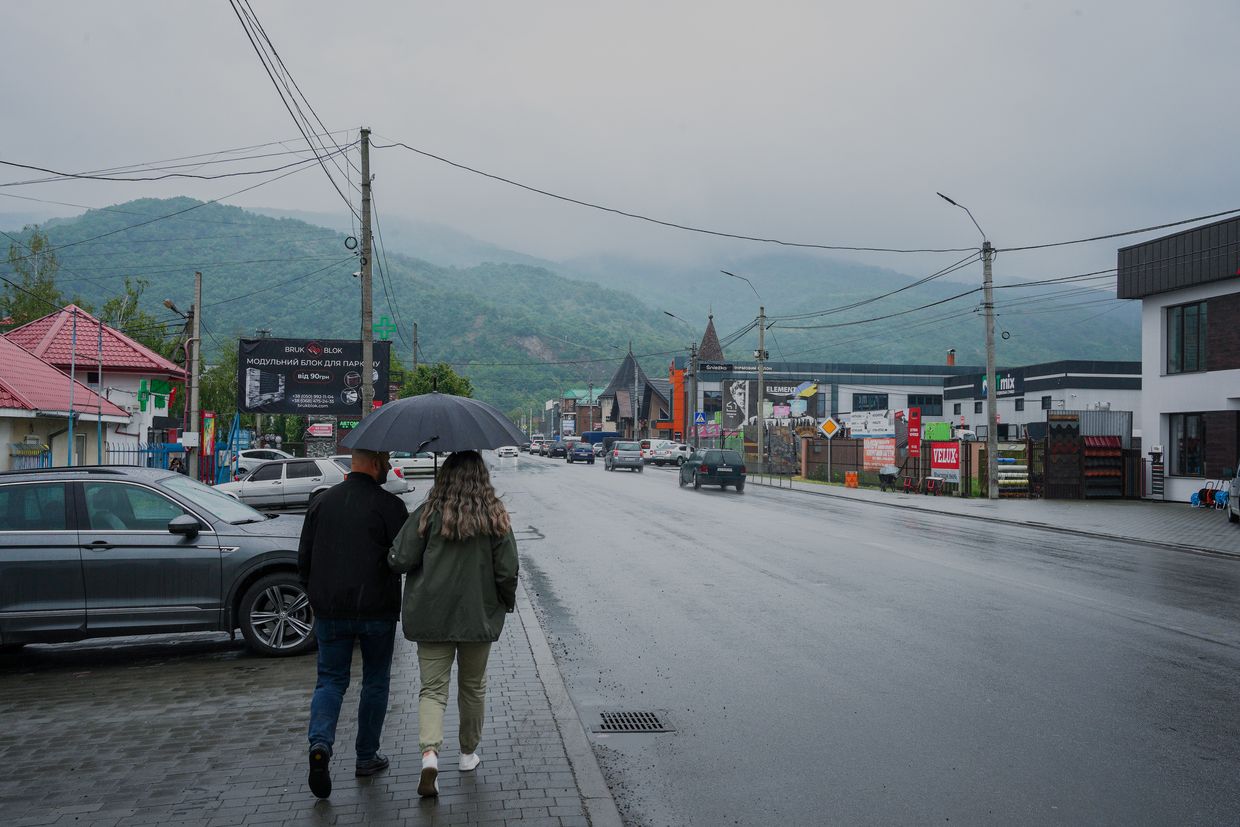EU Parliament Declines to Hold a Moment of Silence for Charlie Kirk

© Teresa Suarez/EPA, via Shutterstock

© Teresa Suarez/EPA, via Shutterstock
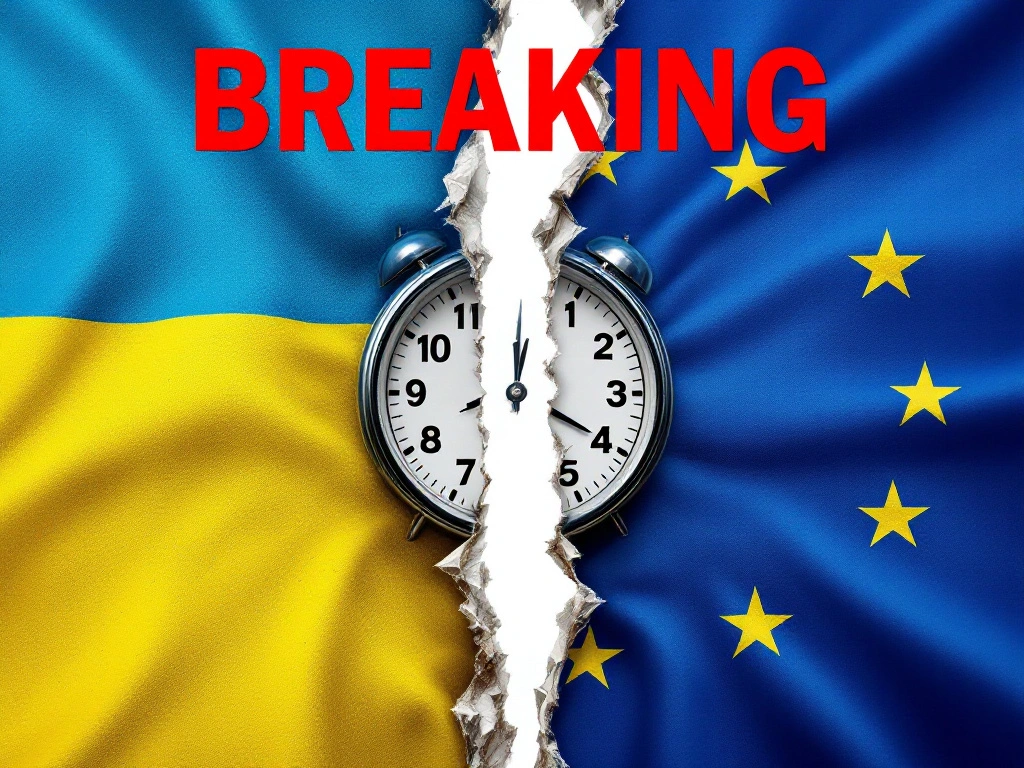
Ukraine’s parliament failed to pass a critical local government oversight law required for EU funding yesterday, potentially jeopardizing access to billions in European financial support as a key reform deadline expired in March.
The Verkhovna Rada rejected draft law №13150 with only 206 votes in favor of the required 226.
The legislation would have established oversight mechanisms for local government decisions and created a registry of municipal acts—requirements embedded in Ukraine’s €50 billion Ukraine Facility agreement with the European Union.
Ukraine has already missed its 31 March 2025 deadline for implementing this reform. This is part of a broader pattern of legislative delays that risk the country’s access to Europe’s largest financial support package during wartime.
The Ukraine Facility provides quarterly payments based on Ukraine meeting specific milestones, including democratic governance and rule of law requirements.
The rejected bill would have created a supervision system in which the Cabinet of Ministers oversees regional council decisions, while regional state administrations monitor local councils.
These bodies would have the authority to demand corrections to illegal decisions and take violators to court when necessary.
The European Union structured the Ukraine Facility around strengthening democratic institutions even as Ukraine fights Russia’s invasion. At least 20% of the program’s €5.27 billion in grants must support sub-national authorities, making local government accountability essential for unlocking EU funds.
European oversight requirements reflect lessons from previous aid programs where weak local controls enabled corruption.
The Ukraine Facility regulation specifically mandates “effective democratic mechanisms and institutions, including a multi-party parliamentary system and the rule of law,” as well as systems “to effectively prevent, detect and correct irregularities, corruption and in particular fraud, all forms of corruption, including high-level corruption, or any other illegal activity ”
Since March 2024, the EU has expended over €12 billion to Ukraine under the facility, funding teacher salaries, healthcare workers, and essential government operations while the country allocates domestic resources to defense.
Parliament’s rejection of reform legislation signals broader challenges in meeting European integration requirements during active combat.
The failure comes as Ukraine depends on international financing to cover roughly half its $37.5 billion external funding needs for 2024.
Beyond the Ukraine Facility, the country relies on additional EU support through the European Peace Facility and bilateral aid from member states.
Parliament had initially approved the bill for further development in May, but the final version failed to gain sufficient support nearly four months after the EU’s implementation deadline.
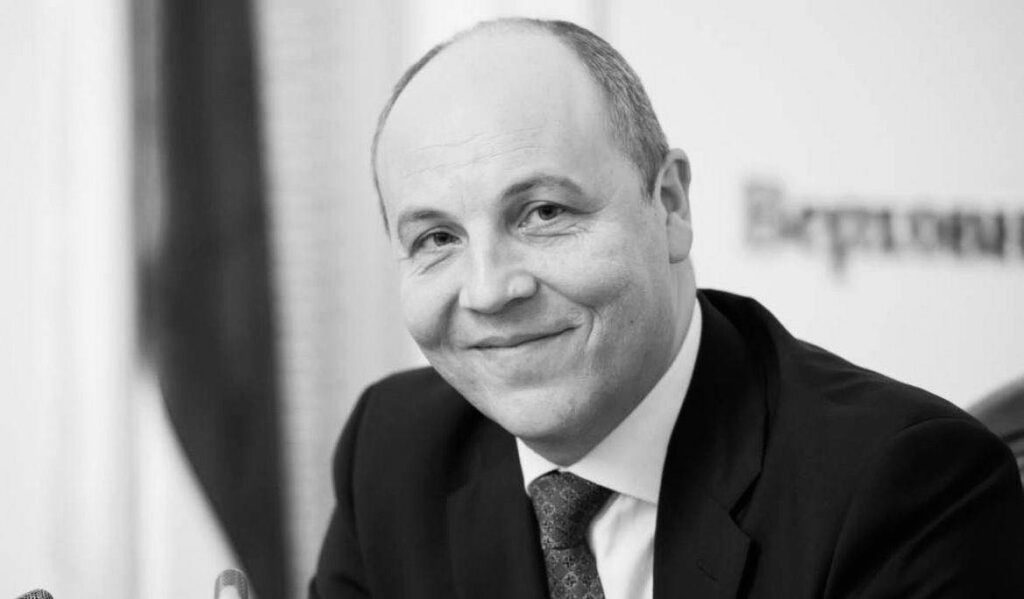
Ukrainian authorities captured a suspect in the killing of former parliament speaker Andriy Parubiy following a 36-hour manhunt that President Volodymyr Zelenskyy personally authorized. Investigators say they’re focusing on a potential Russian connection to what appears to be a meticulously planned assassination.
On 30 August, in broad daylight on a Lviv street, a man dressed as a delivery courier approached Parubiy. The gunman fired eight shots at the lawmaker before confirming his death and fleeing the scene. Video footage captured the execution, showing the killer’s deliberate courier disguise before he vanished.
But 36 hours later, police found him hiding in the Khmelnytsky Oblast of western Ukraine. The 52-year-old suspect from Lviv now faces premeditated murder and illegal weapons handling charges carrying up to 15 years in prison.
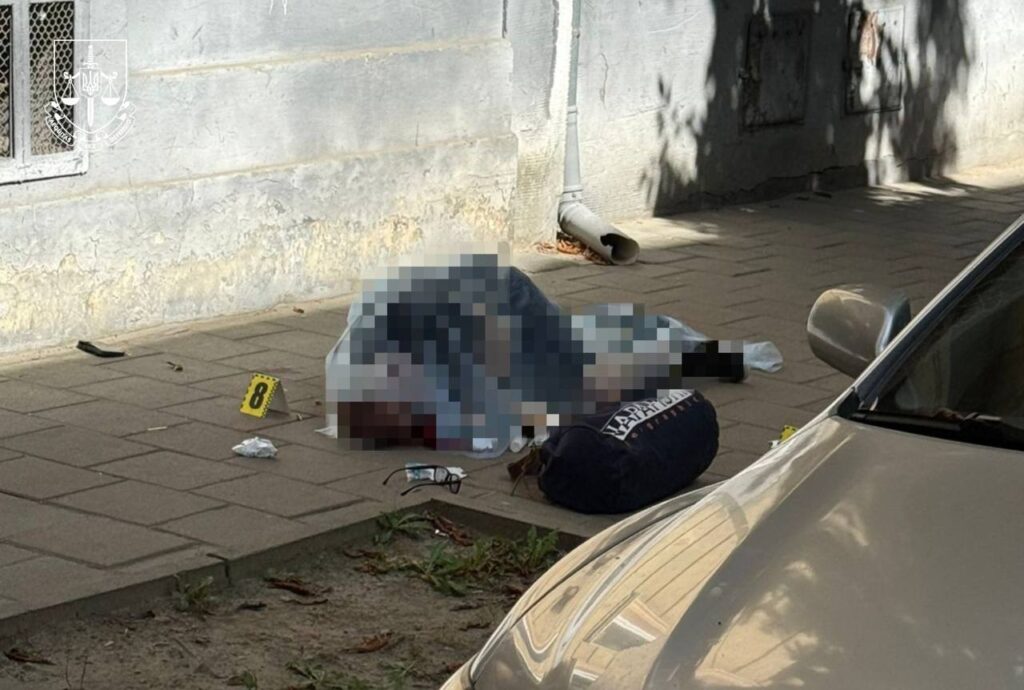
“The crime was carefully planned, its preparation lasted more than one month,” senior investigator Andriy Nebitov told reporters. The perpetrator had studied Parubiy’s daily routines, mapped multiple escape routes, and prepared detailed contingency plans.

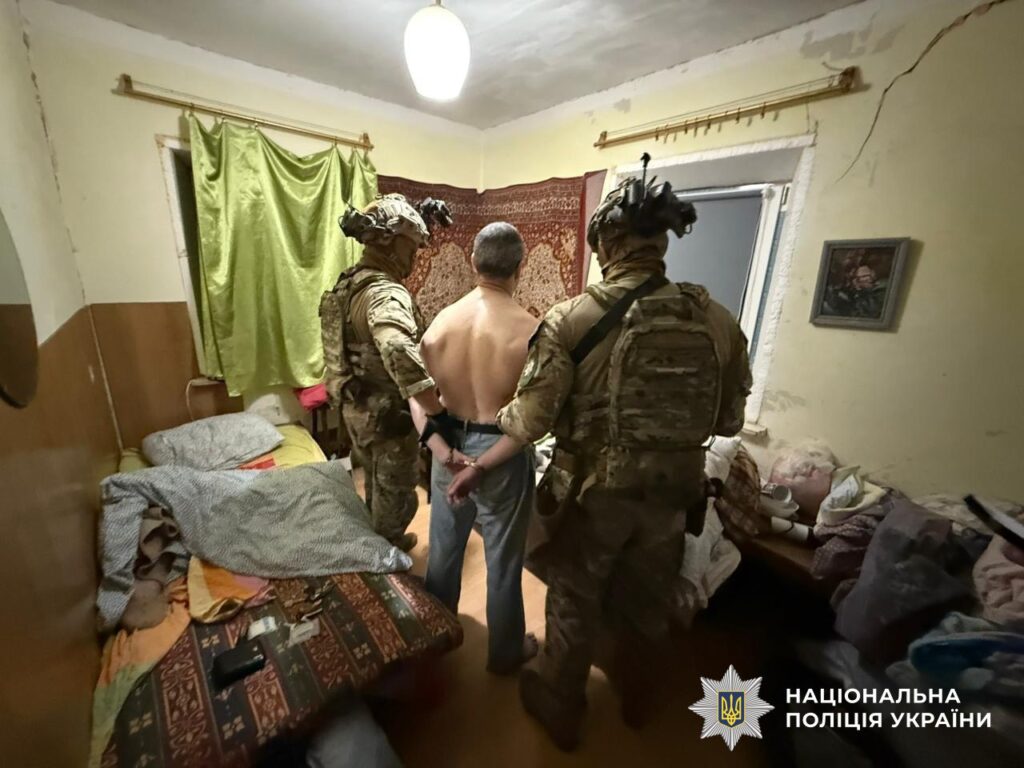
After the shooting, the suspect tried to cover his tracks. He changed clothes, ditched the weapon, and fled toward western Ukraine’s rural areas. Law enforcement found objective evidence linking him to the killing, according to prosecutors who are preparing to hold him without bail.
“Today we prioritize considering the Russian trace — an order from the Russian Federation,” Nebitov added without providing specifics.
Ukraine’s Security Service also says the assassination bears hallmarks of a contract killing with Russian involvement.
“The crime has signs of being ordered,” said Vadim Onyshchenko, head of the SBU’s Lviv Oblast department. “There is operational information that indicates possible involvement of Russian Federation special services in organizing the murder.”
“Revenge on Ukrainian authorities,” he told the reporters, according to a Hromadske correspondent in the courtroom.
The suspect also stated he expects a quick sentence so he can be exchanged for prisoners of war, saying he wants to find his son’s body.
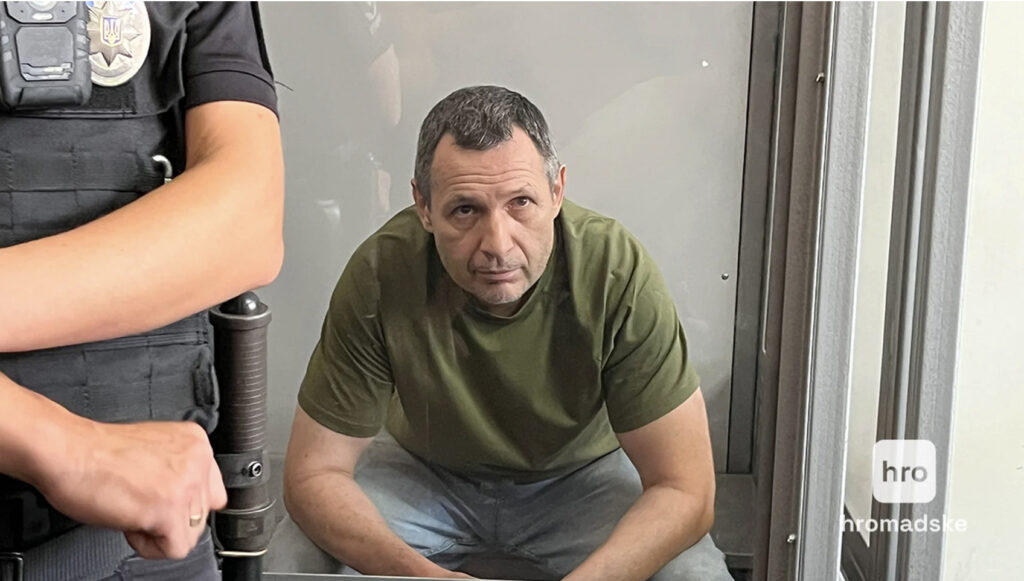
Earlier, Lviv’s Vysokyi Zamok newspaper cited unnamed sources who claimed the suspect’s son went missing a year ago, apparently on the front line. According to these reports, Russians allegedly told him they would return his son’s body in exchange for killing any prominent Ukrainian politician. This information is not yet verified.
However, if true, this would represent a different kind of Russian operation—not a professional hit against the anti-Russian politician, but exploitation of a desperate father’s grief.
Parubiy, 52, was a defining figure in Ukraine’s modern political development and maintained a consistently anti-Russian stance throughout his career.
He co-founded the Social-National Party of Ukraine in 1991, when Ukraine gained independence from the Soviet Union, which declared in its early program that it “considers the Russian state the cause of all troubles in Ukraine.”
The statement seemed extreme at the time—so controversial that Ukraine’s Ministry of Justice delayed registering the party until 1995. But Parubiy’s early anti-Russian stance proved accurate, with Ukraine fighting Russian aggression since 2014 and facing full-scale invasion since 2022.
The politician played pivotal roles in Ukraine’s two major democratic upheavals. During the 2004 Orange Revolution, he served as commandant of the Ukrainian House, a key protest site.
The mass protests in 2004 erupted after a rigged presidential election tried to install Moscow-backed Viktor Yanukovych over pro-Western Viktor Yushchenko. Hundreds of thousands of Ukrainians took to the streets for weeks until authorities agreed to a revote that Yushchenko won.
Nearly a decade later, Parubiy became the de facto leader of the Euromaidan demonstrations in 2013 and 2014, aimed at fighting for Ukraine’s future int he EU and away from Russian influence,
“From that megaphone I started the rally,” Parubiy once recalled about launching the initial Euromaidan protest. “In the first minutes there were 70-80 of us, there were more police around us than us.”

From those chaotic first hours, Parubiy built a protest movement that lasted three months. He organized the tent city, established defensive barricades, and created what became known as “Maidan Self-Defense”—a structured force that grew to 12,000 people by February 2014. He appointed “centurions” to command different sectors and coordinate security for the sprawling protest camp.
Unlike other opposition politicians who negotiated with Yanukovych’s government, Parubiy stayed focused on organizing the grassroots protesters. When government snipers eventually opened fire on demonstrators, killing over 100 people, Parubiy claimed Russian operatives were involved in the shootings both targeting protesters and government forces to maximize chaos.
Following the revolution, Parubiy was appointed Secretary of the National Security and Defense Council, where he helped establish Ukraine’s National Guard by incorporating Maidan self-defense forces. He oversaw anti-terrorist operations against separatists in eastern Ukraine and was a vocal opponent of the Minsk peace agreements.
“I believed and believe that the agreements were signed under very unfavorable conditions for Ukraine,” he said, arguing that Russian President Vladimir Putin had no intention of implementing them and could only be stopped by force.
Parubiy served as speaker of Ukraine’s parliament from 2016 to 2019, working alongside politicians including former president Petro Poroshenko and opposing what he called Russian attacks on Ukrainian language and culture. After stepping down as speaker, he continued serving as a member of parliament representing the European Solidarity party.
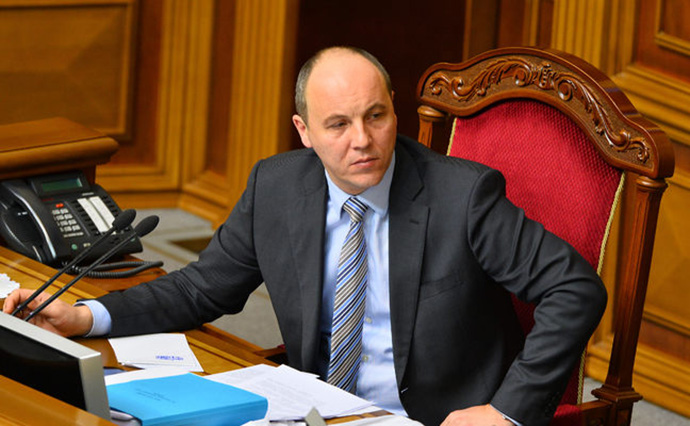
His most dramatic parliamentary moment came in 2010, when he smuggled a smoke grenade into the chamber to disrupt ratification of the Kharkiv Accords—agreements that extended Russia’s lease of its Sevastopol naval base in Crimea and allowed expanded Russian military presence on the peninsula. The stunt failed, but Parubiy’s fears proved justified when Russia seized Crimea in 2014 and launched a war in eastern Ukraine that continues today.
“If we hadn’t allowed this then, far fewer Russian troops would be stationed in Crimea, everything could have gone differently,” he later reflected.
When Russia launched its full-scale invasion in 2022, Parubiy joined territorial defense forces and served at checkpoints around Kyiv. He consistently advocated for the complete destruction of what he termed the “Russian empire.”
“This is today a chance for the Ukrainian army and people to destroy this empire,” he declared, arguing that Russia would remain a perpetual threat if not decisively defeated.
“If it [Russian empire] doesn’t die today, it will continue to remain a threat to us, to our children. And we must leave our children a peaceful sky and end this war with the complete defeat of the Russian army,” he added.
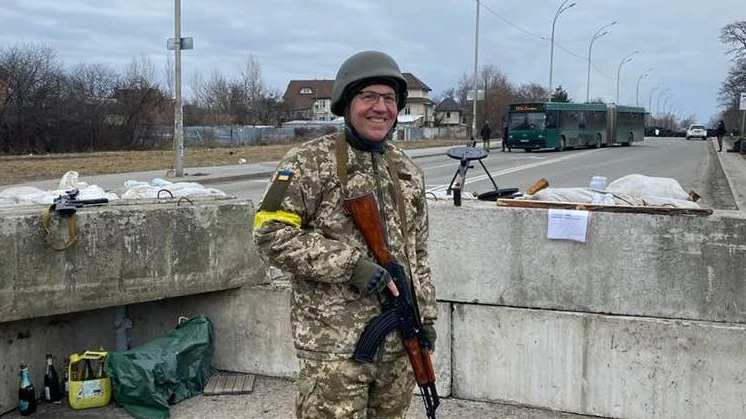
His European Solidarity party colleagues have demanded a thorough investigation, stating they believe the murder is connected to his pro-Ukrainian positions. The party suggested Russia and its supporters were behind the killing, noting that “Moscow sincerely hated Parubiy as one of the state-builders of modern Ukraine.”
The investigation continues as authorities examine all possible motives while focusing on the Russian connection. President Zelenskyy announced that the suspect has already provided initial testimony to investigators.

Former Chairman of the Verkhovna Rada (Ukrainian Parliament) Andriy Parubiy was shot and killed in Lviv on 30 August, according to confirmation from Lviv Oblast Governor Maksym Kozytskyi.
The victim died at the scene from his injuries, police confirmed. The National Police reported that the shooting occurred around noon in the Sykhiv district of the city at 12 pm.
“Sincere condolences to the family of the deceased,” Kozytskyi wrote.
The assailant who shot at Parubiy was dressed as a delivery service courier, Suspilne sources report.
The manhunt for the shooter continues across the Lviv Oblast, with all security services mobilized for the search operation.
President Zelenskyy confirmed Parubiy’s death, with Interior Minister Klymenko and Prosecutor General Kravchenko briefing on the initial circumstances of the killing.
The incident marks another high-profile killing in Lviv, following the July 2024 assassination of former MP Iryna Farion in the same city.
The 54-year-old politician served as Speaker of Ukraine’s parliament from April 2016 to August 2019 and played a key role during the 2014 Ukrainian revolution as Secretary of the National Security and Defence Council.
Parubiy gained prominence during the 2013-2014 Euromaidan protests as commandant of the tent camp and head of self-defense detachments. During the February 2014 revolution, after the ousting of pro-Russian President Viktor Yanukovych, Parubiy led forces that took control of the government quarter in Kyiv, including the Verkhovna Rada, Presidential Administration, Cabinet of Ministers, and Interior Ministry buildings.
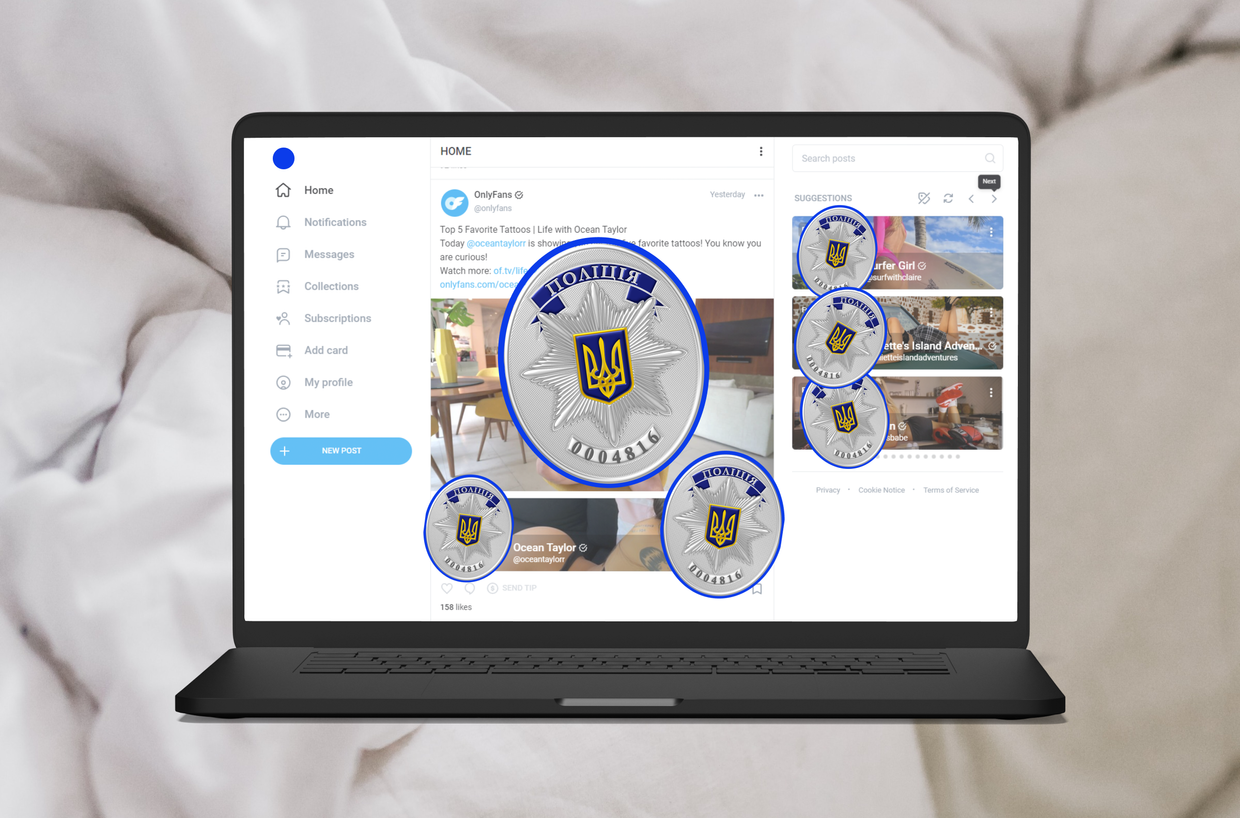
Ukrainian President Zelensky must consider a petition to decriminalize pornography after it reached the required 25,000 signatures, according to data on the official Ukrainian government petitions website.
Pornography production and distribution are illegal in Ukraine, with broad interpretations meaning even sharing nude photos can result in jail time.
Despite being illegal, models on subscription-based site OnlyFans, known for being an adult content platform, must declare their income and pay taxes, as required for all paid content creators.
The decriminalization petition was created by Ukrainian OnlyFans model Svetlana Dvornikova, who argued that "law enforcement should focus on real crimes instead of conducting operations to buy intimate photos."
"Over five years, I've paid more than Hr 40 million ($958,062) in taxes to the state," Dvornikova wrote in the petition.
"But instead of gratitude for this money, the state opened a criminal case against me."
In January 2025, Ukraine's OnlyFans content creators declared more than $7 million in income, paying $1.5 million in personal income and military taxes, though it's unclear what specific content these users create on the platform.
Ukrainian MP Yaroslav Zhelezniak, who has initiated bills to legalize pornography, calculated that from 2020 to 2022, 5,000 Ukrainians earned $123 million on OnlyFans.
"Porn today is mostly online platforms, and those who earn on these platforms officially pay taxes. That's millions of dollars going to the armed forces," Zhelezniak said on his YouTube channel.
The latest bill to legalize pornography was registered in November 2024 and supported by parliament's law enforcement committee in December, but hasn't been brought to a vote yet.
The bill proposes decriminalizing only the creation and storage of pornographic content by consenting adults.
Criminal liability would still apply for revenge porn, deepfake porn, extreme porn, child pornography, and distribution to minors.
"We're simply changing Article 301 of the Criminal Code so that adults who film and distribute intimate videos aren't thrown in prison for 3-5 years," Zhelezniak wrote on his Telegram channel.
"Currently, under Article 301, you can be punished even for storing nude photos on your personal phone."
In July 2022, a similar petition to legalize pornography reached the required number of signatures. It didn't lead to changes, and Zelensky responded by citing existing laws about "protecting public morality."
 The Kyiv IndependentDominic Culverwell
The Kyiv IndependentDominic Culverwell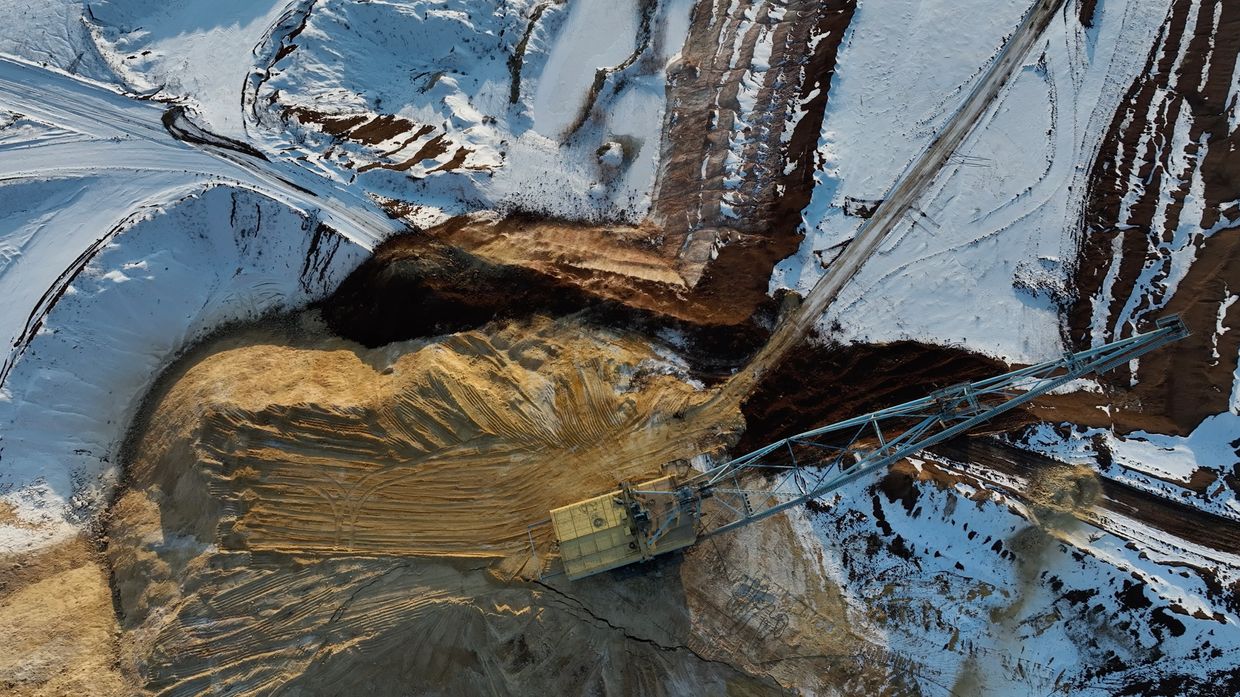
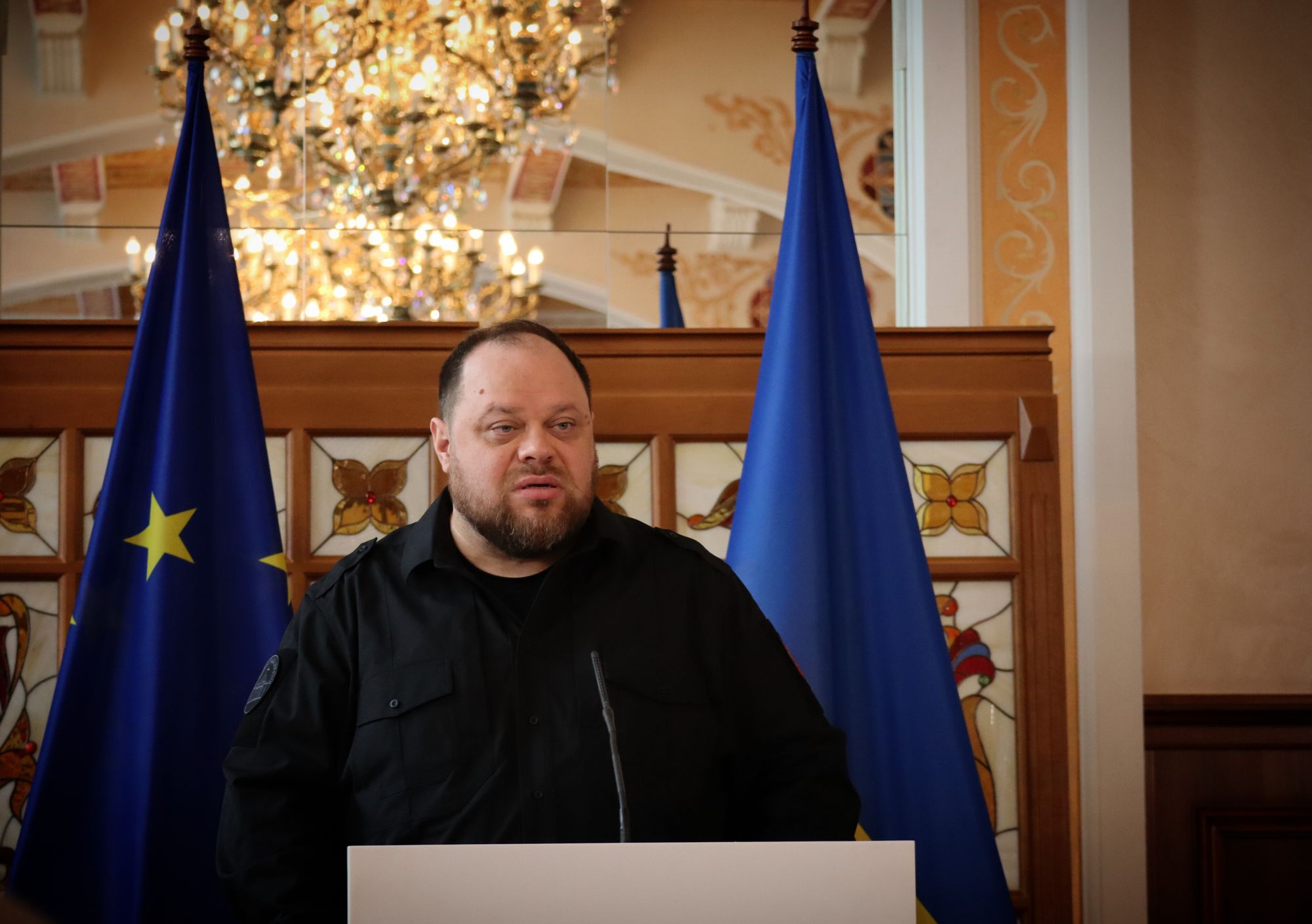
Chairman of the Verkhovna Rada Ruslan Stefanchuk said on June 28 that Ukraine's parliament is preparing a draft bill to hold elections following the end of the martial law period enacted as a result of the war.
"We are working on this draft law, because for the next elections, a new special draft law is needed that will regulate the so-called post-war elections," Stefanchuk said on Ukraine's marathon TV broadcast.
"We are preparing various basic scenarios so that people can exercise their fundamental constitutional right to vote. And this must take place in Ukraine. And I believe we will be able to find the right legislative compromise," he added.
The reason for separate legislation on a post-war election, Stefanchuk previously said, was due to the fact that Ukraine's Constitution does not not provide clarity on the details of holding elections following the end of a martial law period.
No details on the bill or timeline for implementation were provided.
Russia's full-scale invasion and the subsequent declaration of martial law in Ukraine meant elections have been impossible to hold, and President Volodymyr Zelensky's term has been extended, something constitutional lawyers say is allowed under Ukrainian law.
Despite criticism, Ukraine's parliament, the Verkhovna Rada, passed a resolution on Feb. 25 to hold elections after "a comprehensive, just, and sustainable peace is secured" in the country.
While polling shows a vast majority of Ukrainian citizens do not support holding elections before a full peace deal, the lack of elections has stirred some controversy with Ukraine's allies.
At the start of his second term in office, U.S. President Donald Trump urged Ukraine to hold elections — something that Ukraine has thus far refused to do citing the difficulties of holding elections amid active warfare, as well as security implications.
Zelensky has previously said he is willing to step down in exchange for a peace agreement.
Russian propaganda has widely used the issue of elections in Ukraine to discredit the Ukrainian leadership. Mocow has repeatedly claimed that Zelensky is no longer a legitimate president, as his first term was originally meant to end on May 20, 2024.
 The Kyiv IndependentAbbey Fenbert
The Kyiv IndependentAbbey Fenbert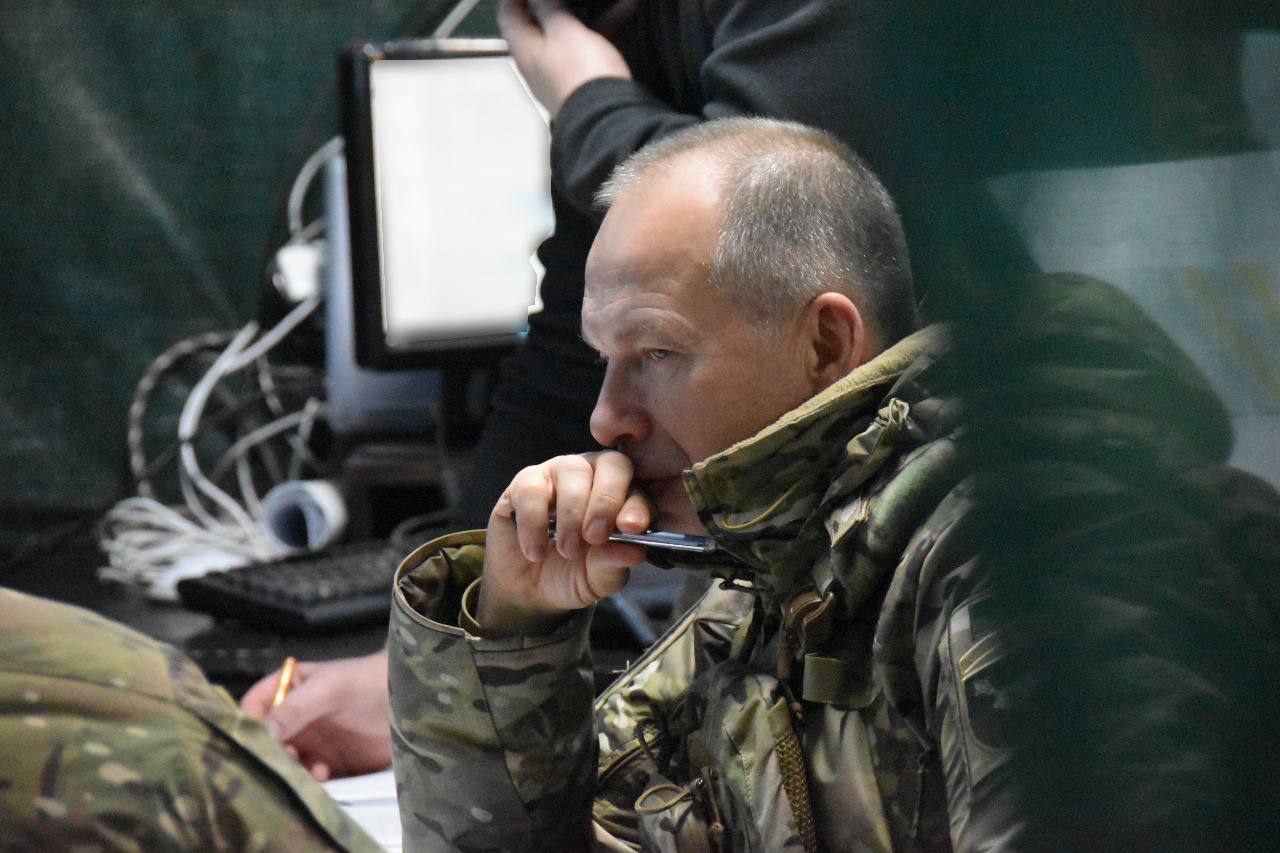
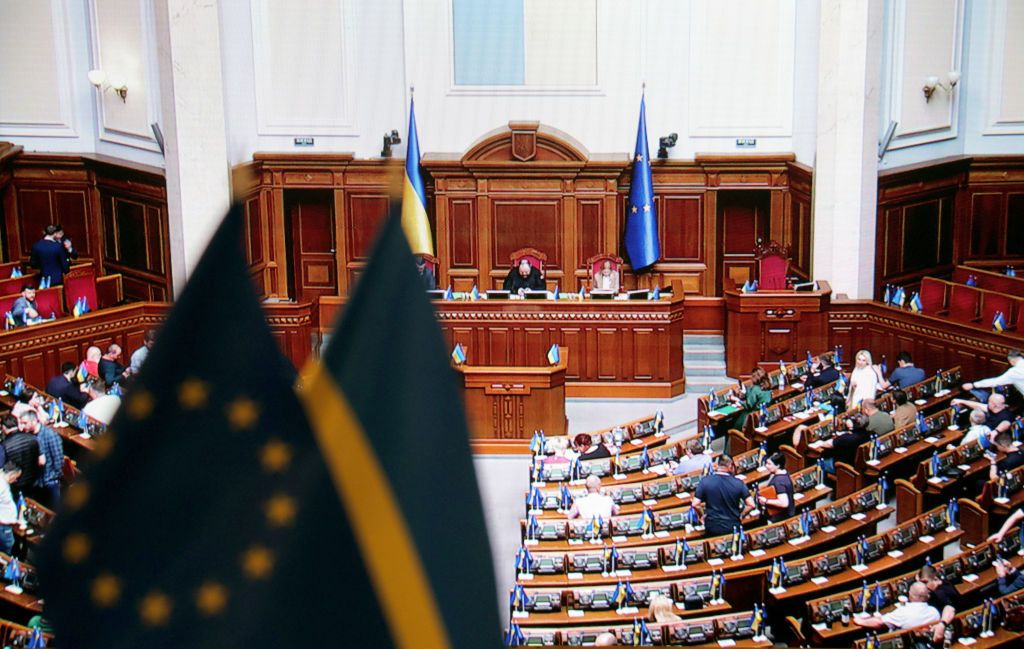
Ukraine's parliament passed a reform of the Asset Recovery and Management Agency (ARMA) on June 18, a key step toward European integration and a condition listed in the EU's Ukraine Facility plan.
The legislation passed with the support of 253 lawmakers "after months of obstructions... unblocking 600 million euros ($690 million) in EU funds," lawmaker Yaroslav Zhelezniak said.
The ARMA is Ukraine's national agency tasked with locating, recovering, and managing assets seized in criminal proceedings, namely during corruption cases.
Proposed reforms include stricter integrity and qualification standards for leadership candidates and merit-based hiring through open competitions involving civil society. They also call for independent external audits, clear deadlines for appointing asset managers, and the use of certified professionals held legally accountable for mismanagement.
The Ukraine Facility, an EU program providing Ukraine with 50 billion euros ($58 billion) in multi-year financial support contingent on reforms, set the end of March as the deadline for the ARMA's reform.
Anti-corruption experts, lawmakers, and Transparency International in Ukraine have backed the reforms, but discussions have dragged on for months since several versions of the bill were introduced in December 2024 and January.
The ARMA has long criticized the proposed legislation, arguing it had already carried out substantial and "transformative" reforms since 2023.
Transparency International reacted by saying that the ARMA's "public communication suggests that the agency’s primary concern is not the introduction of meaningful reforms, but ensuring that its current leadership can continue operating as it has."
Ukraine has embarked on extensive reforms as part of its efforts to join the EU and other Western structures, though Russia's full-scale invasion has presented fresh challenges to this effort.
 The Kyiv IndependentMartin Fornusek
The Kyiv IndependentMartin Fornusek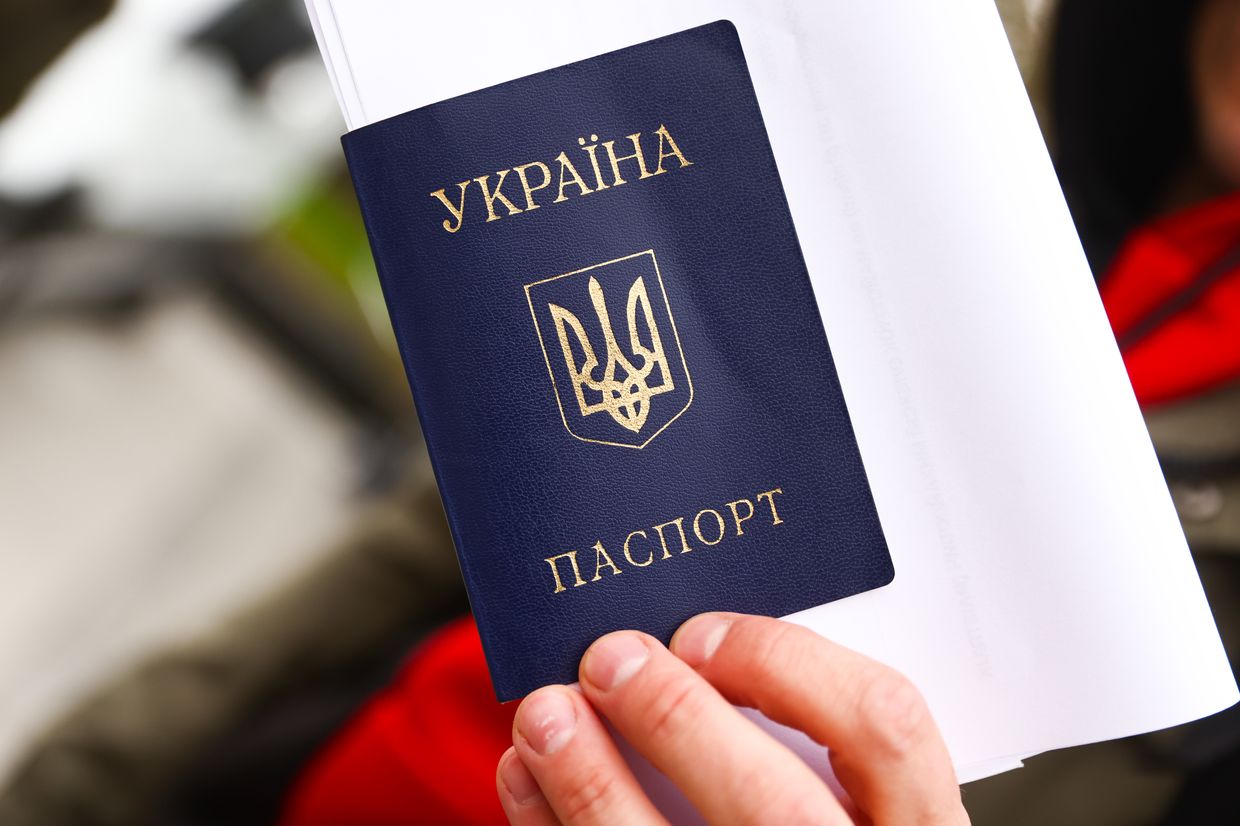

Ukraine's parliament on June 18 supported a bill allowing Ukrainian citizens to hold passports of foreign countries, lawmaker Yaroslav Zhelezniak said.
The draft law, backed by 243 lawmakers in the second and final reading, outlines conditions for holding multiple citizenship and simplifies procedures for foreigners wanting to obtain Ukrainian passports.
The legislation must receive a presidential signature before entering force, largely a formality as President Volodymyr Zelensky himself submitted the bill last August.
Until now, the status of multiple citizenship has not been recognized by Ukrainian law.
The bill also establishes new grounds for losing citizenship, such as receiving a Russian passport or serving in the Russian Armed Forces.
The government will determine the list of countries whose citizens will be able to obtain Ukrainian passports in a simplified way, taking into account issues like EU membership or imposed sanctions in connection with Russian aggression.
Multiple citizenship will be recognized for foreigners from the listed countries who apply for Ukrainian citizenship, or if Ukrainian citizens apply for citizenship in these countries. It will also be recognized for Ukrainian spouses of foreign citizens and other specified cases.
Deputy Foreign Minister Serhii Kyslytsia said the law is not applicable to Russian citizens or citizens of countries that do not recognize Ukraine's territorial integrity.
Even before the full-scale invasion, the Ukrainian diaspora has been widespread around the world, with particularly large communities in the EU, the U.S., and Canada. The war drew millions more from their home, and 6.8 million Ukrainian refugees and asylum-seekers remain abroad as of 2025, according to U.N. data.
Among others, the bill is seen as part of Ukraine's effort to strengthen ties with Ukrainians living abroad. Zelensky said the document should allow ethnic Ukrainians born abroad to obtain citizenship.
The president included the step in his 10-point internal resilience plan last November.
 The Kyiv IndependentMartin Fornusek
The Kyiv IndependentMartin Fornusek